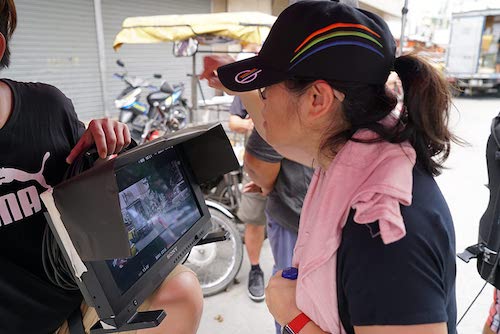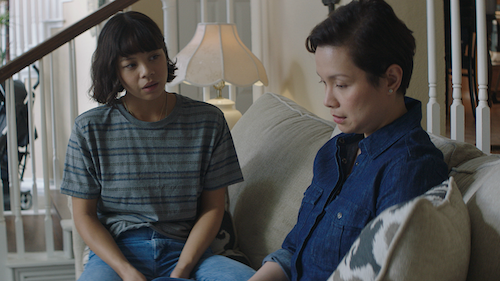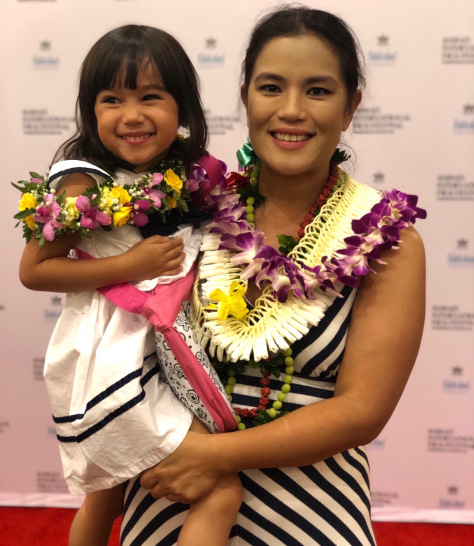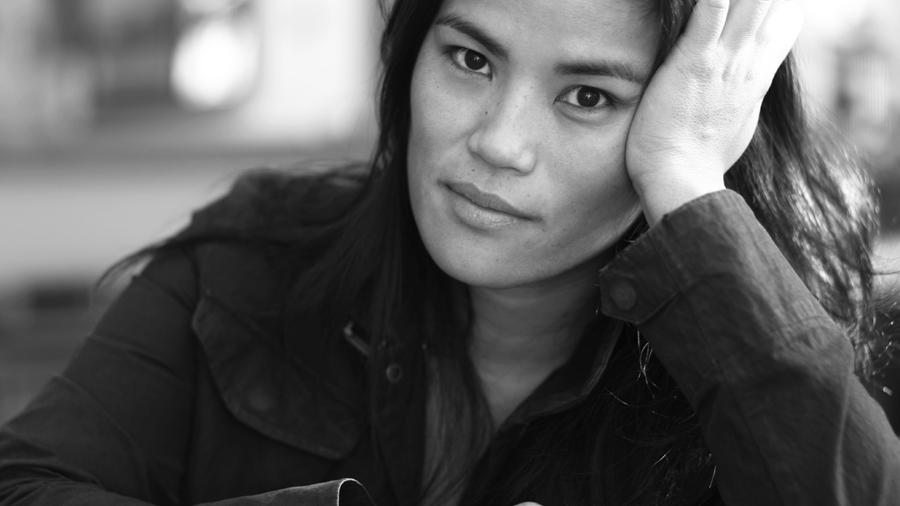Written by Precious Ringor
On October 9, Yellow Rose debuted in movie theatres across the United States for one evening making it the first Filipino film to be released by a major Hollywood studio. The film follows a young, Filipino-American girl living in Texas with dreams of becoming a country music star and whose world is turned upside down after the deportation of her mother. Yellow Rose, starring Broadway star Eva Noblezada and Filipino-American legend Lea Salonga, has garnered much attention from viewers and critics alike, and is considered one of three major ground-breaking Filipino-American films to be released this year.
Film Fest Magazine writer Precious Ringor sat down with director Diane Paragas about her fifteen year process writing and producing Yellow Rose, the lack of Filipino filmmakers in Hollywood and the need for more Filipino representation in film.
Growing up, did you always want to be a filmmaker?
I’m a product of the fact that there weren’t any female filmmakers out there. I actually made little films when I was young but when I went to college, I didn’t really think that was a career option. I studied film. It really was because I didn’t have a role model that I could name or think of that I came to filmmaking kind of later in my life.

Director Diane Paragas on set.
I heard Yellow Rose took around 15 years to make, why did it take so long to complete the film?
Yellow Rose took me a very long time to make partly because I didn’t want to compromise the story. Although I made documentaries and other short films before, I wanted my first feature narrative film to be a very personal story and that meant being Filipino and talking about my upbringing in Texas.
And during that time did you change anything in the script to address what’s happening in the world?
Absolutely! The film has gone through so many drafts in the years, but it was always a story of a mother and daughter separated because of immigration. When Trump came into office instituting this kind of anti-immigrant policies and there was record level anti-immigrant sentiment, I definitely focused on the experiences of families being separated and what that looks like. We follow Priscilla, Rose’s mom, into the system and Rose (Eva Noblezada), a teenager who’s never been away from her mother and who basically has to couch surf in order to survive. We intentionally leaned into this story because that’s our reality today.
I also think that in some ways, films could show us a better version of ourselves. That’s why it was my desire to show the kindness of people who want to help Rose, because of the complete violence and divisiveness that’s going on in the country. There’s a controversial scene in the film [involving a sympathetic ICE agent] that some people love or hate and it’s speaking about that. Whether it’s actually realistic or not is the question and whether it’s responsible to show something like that in our current climate is what people are debating. In my opinion, I defend it because that’s the intention, to show people who might go above and beyond civil disobedience when put in front of a situation where they have to make a moral judgement. I wanted to show what it should look like, not necessarily what would really happen. That scene is probably the most controversial in my film and there’s a lot of talk about it. But I always think it’s a good thing if it starts a dialogue and people feel passionate about it. When films can start conversations, that’s the most I can hope for.
Did you have a target audience or message you wanted to focus on when you wrote the film?
It’s most definitely a gift to the Filipino community. I feel, and I’m sure a lot of people agree, we’re virtually invisible. We’re not present in media, in movies, or films. So, I really wanted to make an authentic Filipino story. At the same time, I also wanted to make an American story that almost anybody could relate to. From your grandfather to your little brother, no matter what your race or political leanings, I hope people from all walks of life will have something they can relate to in the film; or [that they can] open their eyes to this different reality of, not just the immigrant experience, but also a story of someone finding their voice in a world that is oppressive. I do think it’s kind of for everyone, but ultimately it’s a gift to Filipinos and the immigrant experience.
What was the planning process like? Did you draw from any real/personal experiences?
I grew up in Texas, but I wasn’t Rose. I didn’t love country music; I had a shaved head and I played in a band. I think making the film about a Filipino girl who wants to be a country singer was more of an interesting starting point for a character. But all her feelings of isolation were definitely me.
As a documentarian, I definitely did extensive research. I visited detention centers, interviewed lots of families who got separated, I even made a short documentary and all of those experiences are featured in the film. The way you see this family go through the system was based on real research. I also consulted with the Jose Antonio Vargas: [a writer, filmmaker and] the founder of Define American [an illegal immigration advocacy organization].
Was there a particular scene you were excited about?
There’s a clip out there on YouTube you can watch and it’s one of my favorite scenes in the movie. It’s when Rose’s mom gets arrested, so Rose has to go to her aunt’s house and she’s missing her mom. We see her mom singing “Dahil Sa’yo” in the beginning and now we see her aunt [played Tony Award winning Broadway legend Lea Salonga] sing it to her daughter. It’s filmed in a way that they sing it as a duet. A lot of Filipinos cry in that scene because that song really means something to us, we know what the words are with it being in Tagalog.
Also, I intentionally did not subtitle the film because I felt that with the film being about ‘belonging’ and ‘being an American’ if we subtitled it, the audience would be taken out and they would automatically look at us as if we’re the other, we’re foreigners and we don’t belong here. I was careful not to do that but still give enough context for people who don’t speak the language, so they knew the intention of the song. It’s a gift to Filipinos because we know the real definition behind it. It’s something I’m proud of and it’s definitely one of my favorite moments in the film.

Eva Noblezada and Lea Salonga in Yellow Rose.
The actresses in your film are such legends in the Filipino-American community. Was that intentional?
When I met Eva, we [had] already auditioned so many young Filipino actresses [and] singers, but there was something about her and I knew it when I saw Miss Saigon. I knew what was required of the actress in terms of being able to just act through a lot of emotions and I needed to know that she could sing. Eva, of course, is a two-time Tony nominee and Grammy winner. She has one of the best voices in the world. Just her acting ability blew me away, I gave her the role on the spot. After I cast Eva, I actually wrote a part for Lea. I think in Lea’s case, it was this iconic, symbolic thing because she’s such a legend and she means so much to the Filipino [and] Filipino-American communities. Just to have her in this film is like honoring her legacy.
Are there any projects we can look forward to or anything in the works?
Yes, I have two movies I’m attached to but they’re both in the early stages. One is with Picturestart, film producer Eric Feig’s company; Scooter Braun [entrepreneur and record executive] is producing as well. It’s sort of a star-crossed lover’s type of film.
The other film is with Atlas Entertainment. That’s a story of two women going on a crime spree across America, kind of like Bonnie and Clyde. I’m also writing Lizards, a pop music opera set in the Philippines during World War II. It follows a dark-skinned Filipina girl who has a magical lizard and she eventually goes on to become a guerrilla soldier in the war. It’s a bit of a love letter to my grandfather who was a guerrilla soldier, as well as to all the proud men and women who fought in the second world war.
Anything you’d like to say to Yellow Rose’s viewers?
This is a very important moment for Filipinos. It’s a milestone because it’s the first Filipino film being released by a major Hollywood studio. We were in the Top 10 and I want to see it do better. If this film can do well, it will open doors for aspiring Filipino filmmakers and prove to Hollywood that our stories can compete. It’s important that we support the film the same way people came out and supported Crazy Rich Asians. This is our moment and I want to urge people to seek it out.

Diane Paragas with her daughter Sophie Zimny at the Hawaii International Film Festival (HIFF). Paragas’s daughter also plays Lea Salonga’s daughter in the film.
And what is your advice to aspiring filmmakers, especially other filmmakers of a minority group?
I think my advice to future filmmakers is when you come out with your first film, it’s a good idea to talk about something personal and to stick with it. Don’t let people try to change that vision just because they might give you money or they have their own ideas. As a filmmaker, you have to stand by your work and that can be tough at times. It could mean waiting a long time or telling people no when they are giving you opportunities – but stick to your vision and try to do something that shows what makes you unique. It’s your voice and your story.
To learn more about the film Yellow Rose and how to watch, visit their website.

